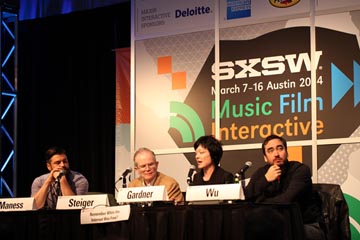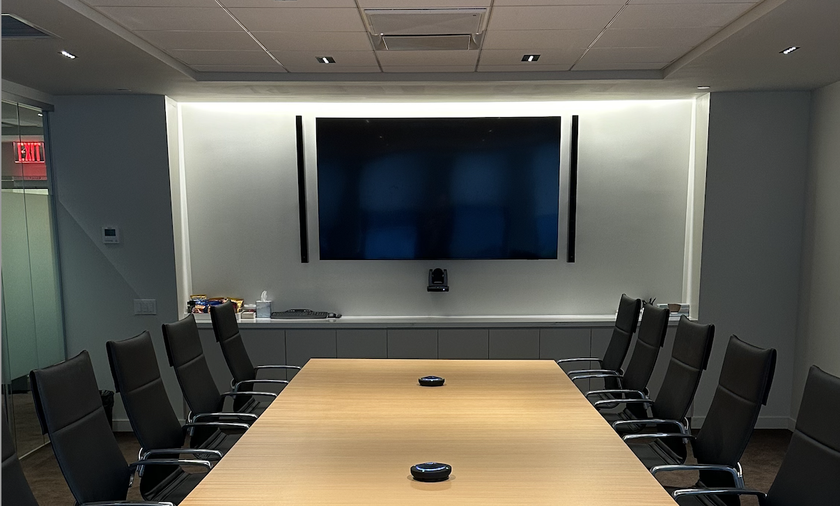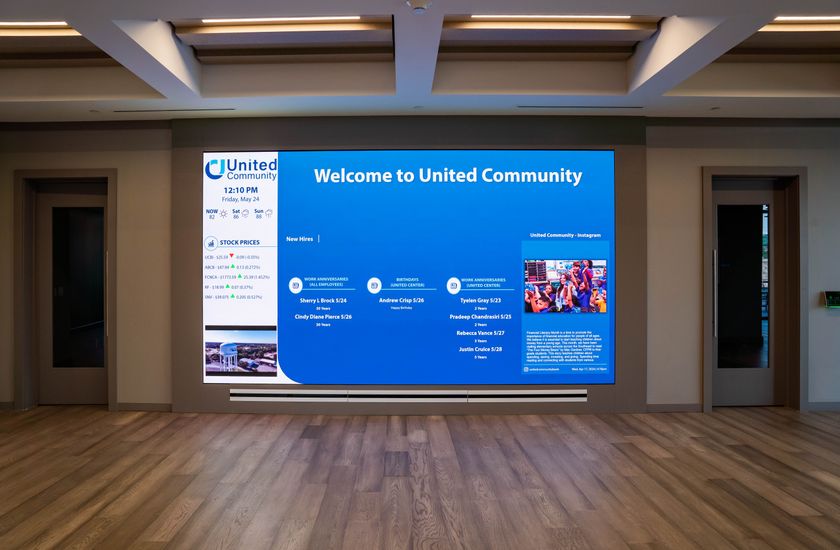At SXSW Interactive, it’s impossible to have a Panel session with the title “Remember When the Internet Was Free?” and not have it veer from a look at specific recent policy and market developments into a session involving hand wringing and existential musing on the very nature of the Internet. It’s Sx (“SouthBy...") after all. Panels here (there are hundreds of them) are by design rambling and meditative and virtually (and refreshingly if at times frustratingly) slide deck and data-free. And this issue is so much at the heart of the SXSW culture it’s bound to elicit strong reactions as indeed the very catalysts of Internet creativity are under as much pressure as are its bandwidth and distribution underpinnings.
In the months and weeks leading up to SXSW there have been a variety of salvos fired across the bow of the “free” Internet by U.S. courts, the FCC, Broadband giants, and content providers that I showed up at the Saturday session hoping to dive right into analysis of the recent legal developments that directly challenge the FCC’s Net Neutrality policy– that is, the FCC’s position adopted in 2010 on “Open Internet” protocol stating that Broadband providers were essentially “common carriers” that should not be permitted to discriminate against any entity that sought to use its “right of way” i.e. its network infrastructure.
The panel at SXSW, “Remember When the Internet Was Free?”, brought together some top thinkers and players to address the issues– if getting to specific Net Neutrality issues was a circuitous route through broader and more fuzzy “culture of the Internet” issues such as whether Internet creativity or a broader “freedom” is waning in the wake of a de facto monopolization of activity by five or so content giants, combined with the encroachment of the big Broadband companies. Michael Maness, who leads the Journalism and Media Innovation program at the Knight Foundation, moderated three panelists with deep experience in the issues: Paul Steiger, the founding editor-in-chief, CEO and president of ProPublica from 2008 through 2012 and now Executive Chairman of ProPublica's board of directors; Sue Gardner, the executive director of the Wikimedia Foundation; and Tim Wu, professor of Law at Columbia University, and one the country’s top experts on regulation of telecommunications, and who In 2006 was invited by the FCC to help draft the first network neutrality rules, which were being launched partly as a kind of FCC regulatory mitigation of the AT&T and BellSouth merger.
Without formal presentations, the session went first down the path of some interesting and open-ended exploration of where we stand in early 2014 in terms of innovation. What better place than SXSW Interactive to ask that question– the event/conference where the perfect storm of Social Media, increasing and virtually “free”-to-the-consumer bandwidth, and the bursting onto the scene of the Smartphone all came together to propel SXSWi from what was once a SXSW Music festival afterthought into a major platform for creative innovation for anything Interactive– Smartphone Apps, new Social Media platforms, entertainment industry/music industry/television industry crossover, BYOD, and more.
So in that Sx vein, and before much mention was made of Net Neutrality controversies, there was a somewhat brooding consensus that we have already lost the innovative magic of the “free” Internet. This mild disillusionment and loss of innocence, as we move now from the excitement/innovation phase to a more weary stance in the face of the kind of consolidation that characterizes all industries, will define this year’s SXSW for this analyst. There’s much more concern at this SXSW than any I’ve attended with the pressures on and threats to innovation, from this panel’s topic to the coming days' sessions on the Big Data and Privacy issues that are moving from back burner to front.
“Nothing is free” said Paul Steiger at the “Free Internet” panel Saturday. “The Internet has been ‘free’ in the sense that the first hit of heroin is free.”
“When I was a kid I thought TV was free”, added Steiger, referring to the Lucky Strike-sponsored “Your Hit Parade” in the 1950s, adding that it was only later he realized it was all a Cigarette company affair.
Steiger and the other panelists coalesced around the idea that the big content platforms, Facebook, Google, Twitter, et al had created a kind of de facto, user preference-based “monopolies”. And that that consolidation has thrown some cold water on pure innovation. “At one end, you have giants like Facebook, and Google, selling information about you and me. At other end, Comcast and Verizon seeking to build local monopolies so they can raise prices.”
Sue Gardner of the Wikimedia Foundation set a certain tone by opening her remarks with a reiteration of her decision last year to resign from that organization because she “does not like the way things are going”.
Gardner reiterated Steiger’s comments on the disconcerting nature of data mining of users that’s driving so many web sites and Apps now.
“If you are not paying for it, then you are the product being sold”, said Gardner.
What we all wanted, a few years ago, said Gardner, was access by everyone, that ‘always on’ and a vibrant sense of community-building. Free of the threat of government intervention or government shutdown. And that yes, it would be “free” also in Net Neutrality sense. But mainly, that the ‘top layer’ would be full of vibrant, individual sites, personal sites, sharing sites. Civic-minded sites.
Now the Internet resembles more “an upscale shopping mall”, said Gardner. Wikipedia is in the “public service”, she pointed out, but asked how many more things there are like that? She lamented that the Internet was not more like the visionaries a few years ago imagined: something more like a city, with shops and businesses but also public parks and open spaces.
Columbia law professor (and probably the country’s top FCC expert in academia) Tim Wu was best positioned Saturday to get the heart of the legal and regulatory issues threatening Net Neutrality now, but opened with some historical perspective, based on his research, that looked at “long cycles" in information technology whereby open information systems become consolidated and closed over time, reopening only after disruptive innovation. Wu alluded to the historic AT&T telephone monopoly, the evolution of the Hollywood entertainment industry, and that of the broadcast and cable TV industries.
“But is the Internet different” Wu asked? “Is TCP/IP different? We thought, yes, it was different.”
But now, according to Wu, and echoing the concerns of the other panelists over the concentration of so many resources in a few big content giants, we have the “big 5” with so much power. And that, combined with a move now from the Broadbands to leverage their long-held quasi-monopoly footprints, does not bode well.
“If we don’t want the Internet to be like Cable TV, we have to do something”, said Wu.
In the Q&A at the panel, I asked that if we step back from all the larger trends, and get down to specifics, including what I think is the real threat to internet “freedom”– the threat to the legal framework of Net Neutrality, then what can we expect now from the FCC or other power brokers?
To circle back to the context for this question, remember: On January 14, 2014 a decision by a federal judge– in a case that pitted Verizon against the FCC– said that the FCC had based its Net Neutrality regulation on law– common carriage designation– that does not apply to broadband providers like Verizon (and by extension, Comcast, Time Warner, etc.). Startling. The January court ruling ostensibly removed the common carriage argument from the equation and that could undermine the rest of Net neutrality by allowing Broadband providers to discriminate as they see fit going forward– as regards allocation of bandwidth speeds, access, etc. (The FCC’s 4-year “open internet” stance has meant: A) Broadband providers, ISP’s, had to be “open” to consumers and content providers about how they managed bandwidth in congested networks. B) Broadband providers could not block lawful content on their networks. And C) fixed-broadband providers– but not wireless– would be prohibited from "unreasonable" discrimination against traffic on their networks.)
But there was also some good news hidden in that January 14 decision. The court rejected Verizon’s claim that Congress did not give the FCC jurisdiction over broadband access. The court simply said that the common carriage part of the Net Neutrality rules were not valid, while writing that the FCC did have power from Congress to institute regulation pertaining to the Internet or broadband providers, “to preserve and facilitate the ‘virtuous circle’ of innovation that has driven the explosive growth of the Internet– is reasonable and supported by substantial evidence.” So the judge left often the possibility that the U.S. Supreme Court, or the U.S. Congress, or the FCC itself, might simply be able to re-classify Broadband providers to fall under “common carriage” provisions. The question of whether there are the political, judicial, or regulatory stars in alignment for that to happen is the question facing us now.
Tim Wu addressed the FCC question. Without making specific predictions about how the FCC would rule in the short term, he said that there is some hope in the fact that the new FCC Chairman, Tom Wheeler, is in the part (near the end) of his career where Wu believes he’ll be more immune to pressures resulting from the revolving door nature of the FCC. Wu had emphasized earlier in the discussion, that we– all of us, including government regulators– should consider the Internet as a utility. The implication being that Net Neutrality is not only in the common good, but that the FCC has a duty to preserve it, with specific policy.
I also asked whether the recent announcement (February 23rd) by Netflix and Comcast whereby Netflix will pay Comcast for “faster and more reliable access” to Comcast’s subscribers, was a sign that Netflix is betting that Net Neutrality will not be upheld down the road by the FCC. Indeed, much of the media has portrayed the deal as such. (The New York Times said in an article February 23rd that “The deal is a milestone in the history of the Internet, where content providers like Netflix generally have not had to pay for access to the customers of a broadband provider.”)
Tim Wu said that no, you should not read it that way. That the Netflix/Comcast deal is just exploiting a loophole in existing regulations and that it does not violate Net Neutrality. That’s certainly a relief, as such a bet by Netflix would have been disheartening to any advocate of Net Neutrality.
There will be more Comcast/Netflix-like “transit agreements” down the road. Many of them. They will attempt to avert a real showdown on Net Neutrality. There will be cobbled together alliances, and the creation of “sponsor-funded content” (i.e. a content giant paying your Broadband bill). And more side streets from a path toward new Net regimes. Remember back to your Economics 101 class. Get back to basics– and ask yourself why the Net should be immune from the laws of Economics. Start with this: What is the science of Economics? It’s the study of how society allocates resources to deal with the problem of scarcity. If you passed that course, you'd remember that "Scarcity" does not mean that there is not enough to go around. Scarcity as an economic concept means that people always want more than they have. No matter how much “free” bandwidth we provide each other, we will always want more and there will never be enough. If you’re a “the market decides” advocate you’ll say no probem, “let pricing even out supply and demand” (goodbye free Internet). If you believe the Internet is a utility (a U.S. Judge threw some cold water on your argument on February 14th) then the FCC (under order of a higher court like the Supreme Court?) must re-designate Broadband carriers as common carriers.
Will Net Neutrality survive? Don't we hope so. I believe it will, for political reasons that have to do with both the politics of the FCC and the politics of Hollywood (more on that later). But this week, there’s more SXSW. Where innovation may be under pressure, but that doesn’t stop 30,000 attendees from crowding the hundreds of sessions here– more panels and sessions than the rest of the B2B technology trade events and conferences in the entire country mount collectively in a year. I don’t have the bandwidth to attend 1/10th of them. But I’m allocating resources the best I can.










